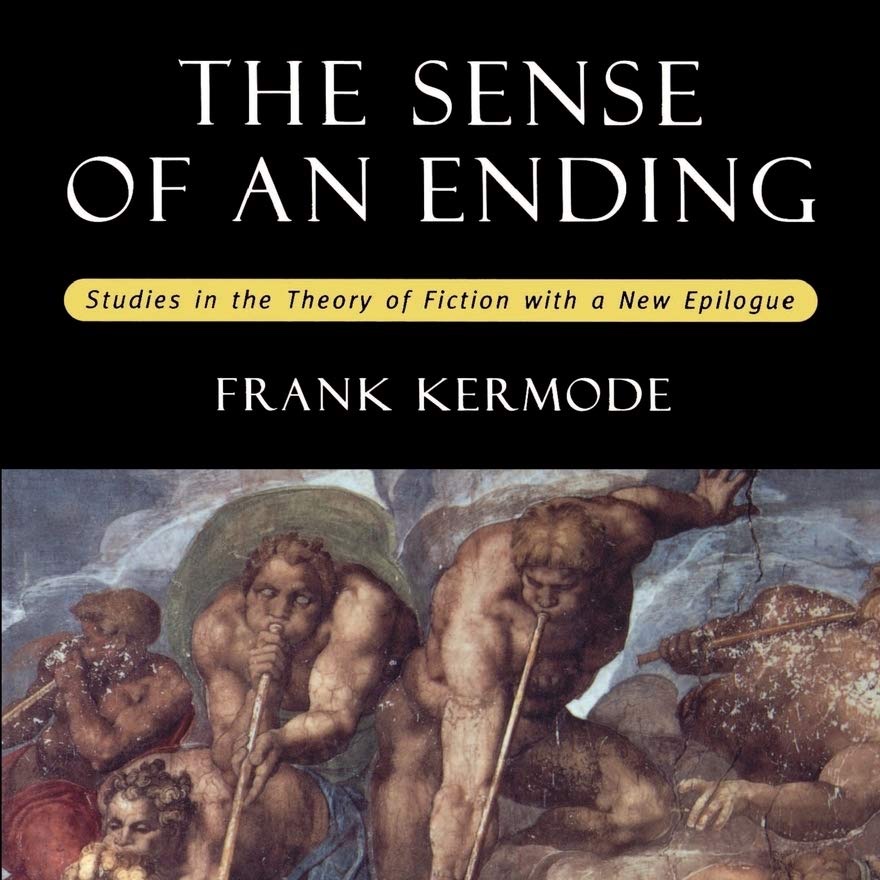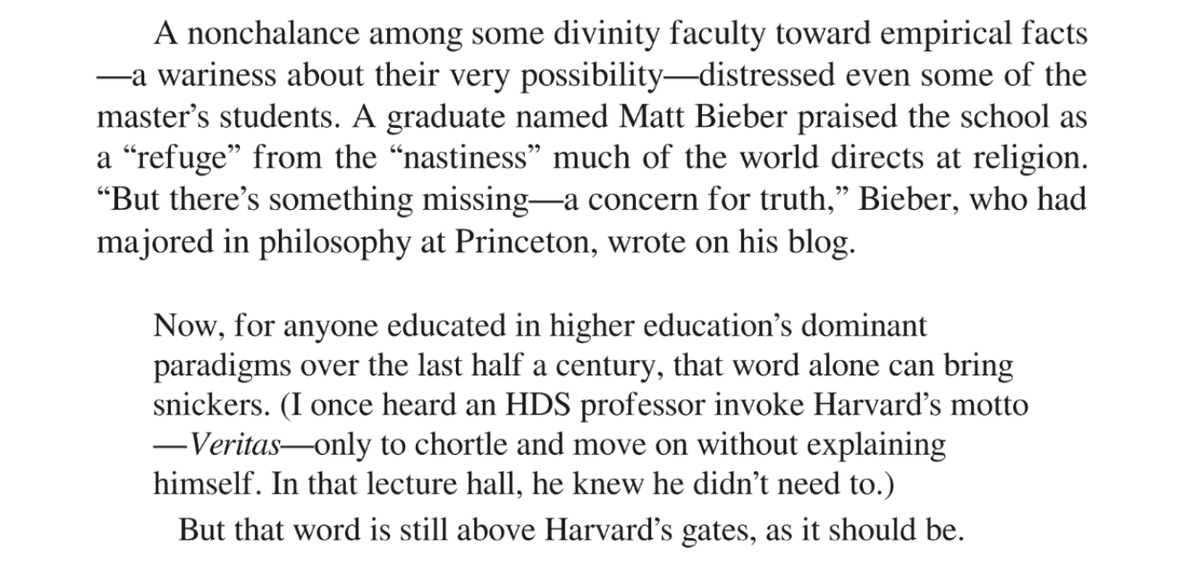Happy to say that my review of Veritas, and the saga of the “Gospel of Jesus’s Wife” forgery, is now published at @TheTLS. https://www.the-tls.co.uk/articles/veritas-ariel-sabar-review-michael-press/
(Note: As usual, the author was not responsible for the title or the lead photo.)
Thanks to @arsteinjustnes @LivLied @papyrologyatman @dana_lande and the rest of the Lying Pen of Scribes project for discussing this book with me.
(But be sure not to blame them for anything in the review itself!)
(But be sure not to blame them for anything in the review itself!)
Because of issues of space I couldn’t go into great detail on many points in the review; I'm going to discuss some of them further in a thread below
Veritas is a remarkable book in many ways. Ariel Sabar is to be congratulated for the depth of research he conducted & for shining a light on the importance of provenance.
The book builds on Sabar's important 2016 Atlantic article, but adds a wealth of new detail. It's definitely worth reading even if you were already familiar with the case. https://www.theatlantic.com/magazine/archive/2016/07/the-unbelievable-tale-of-jesus-wife/485573/
Among the many disturbing things he revealed (for instance, the messed-up review process for King’s academic journal article), the most important might be the stunning lack of interest in provenance from the scholars involved.
This is especially stunning because – though Sabar doesn’t emphasize this – if the fragment *had* been authentic, it would’ve almost certainly had to be illegally dug up & illegally removed from Egypt.
(Note that Egypt has regulated antiquities sale & export since 1835!)
(Note that Egypt has regulated antiquities sale & export since 1835!)
Yet Karen King, Roger Bagnall, and others (at least from what we see in the book) show no interest in the likelihood that they were dealing with stolen property!
Remember, they thought it was real.
Remember, they thought it was real.
But there are also things that Sabar does here that I think really miss the point, or worse.
(Again, I couldn’t go into much detail in the review; let’s take a little look here.)
(Again, I couldn’t go into much detail in the review; let’s take a little look here.)
When I, and many other scholars, look at experts promoting forgeries & unprovenanced material, we see it as part of a pattern, of experts overconfident in their ability to separating real from fake.
. . . or of being seduced by a desire for the quick & easy path to remarkable finds.
(See for example @artcrimeprof's blurb for Veritas!)
(See for example @artcrimeprof's blurb for Veritas!)
But this isn’t what Sabar does.
Instead of generalizing to a pattern, he psychologizes: he asks what *specifically* about Karen King led her to embrace this forgery.
Instead of generalizing to a pattern, he psychologizes: he asks what *specifically* about Karen King led her to embrace this forgery.
And this leads Sabar to suggest that King is a uniquely dishonest scholar, unqualified for her position, with idiosyncratic ideas & no respect for the rules.
This is a remarkable turn, and I was surprised that – other than this paragraph from Tony Burke – I could find it mentioned in any of the several scholarly reviews of the book.
https://www.apocryphicity.ca/2020/08/29/some-reflections-on-ariel-sabars-veritas/
https://www.apocryphicity.ca/2020/08/29/some-reflections-on-ariel-sabars-veritas/
(I think this is why we get attention to King’s biography, with emphasis on the rare episodes Sabar could find showing the teenaged King pushing boundaries.)
And it ends with Sabar more or less taking aim at King’s entire body of scholarship.
He implies several things that are questionable, or simply false, in order to paint King in a more negative light.
For instance, he implies that King is alone in suggesting that the term “Gnosticism” should be discarded.
(I’m no expert on early Christianity yet even I can point to several scholars who agree!)
(I’m no expert on early Christianity yet even I can point to several scholars who agree!)
Then there's his discussion of the Jesus Seminar.
He suggests that King’s involvement with them was a problem because there was something wrong with their makeup and their scholarship.
He suggests that King’s involvement with them was a problem because there was something wrong with their makeup and their scholarship.
We get the idea that the Jesus Seminar was highly secretive, as Sabar implies that they didn’t circulate their controversial ideas beyond their members . . .
But here's a question: how did Sabar access this speech?
Well, for one thing, it's been on their website for years!
https://www.westarinstitute.org/projects/jesus-seminar-opening-remarks/
Well, for one thing, it's been on their website for years!
https://www.westarinstitute.org/projects/jesus-seminar-opening-remarks/
Sabar implies (but doesn’t state) that the term “operational effectiveness” was invented by the Jesus Seminar’s Robert Funk as a coded term for their secret mission . . .
. . . when in fact it’s a purely descriptive term that was popularized by Frank Kermode in the 1960s, in arguably one of the most influential works of literary criticism of the 20th century.
When Sabar talks about the relationship between Harvard Divinity School and the Faculty of Arts and Sciences, and the university's review of HDS -- & its timing in relation to King's correspondence with Fritz -- I do think that he gets at something relevant and important. . .
But even here he weakens his case by exaggerating.
He suggests "a nonchalance among some divinity faculty toward empirical facts . . . distressed even some of the master's students", then proceeds to give only 1 example:
He suggests "a nonchalance among some divinity faculty toward empirical facts . . . distressed even some of the master's students", then proceeds to give only 1 example:
And when you read this example, it's clear the student isn't bothered by HDS specifically but by the last 50 years of the humanities!
(This isn't a case of HDS's weakness in comparison to the humanities in FAS, it's something they very much share.)
(This isn't a case of HDS's weakness in comparison to the humanities in FAS, it's something they very much share.)
What’s odd about Sabar taking aim at King’s career – thinking he can refute entire books in a single paragraph or page – is that one of the themes running through this book is “competence”.
Sabar rightly points out that Karen King isn’t a papyrologist; that she delayed for some time before consulting an expert on Coptic texts; that the scientists who analyzed the ink and material, while respected scientists, weren’t *competent* for these specific jobs.
So why does Sabar think he as a journalist is competent to evaluate King’s body of scholarship?
Example: When we look at the endnotes for his response to King’s What Is Gnosticism?, the only references are to What Is Gnosticism? (and one to 2 articles by King).
That is, the entire response appears to be Sabar’s own.
That is, the entire response appears to be Sabar’s own.
Sabar doesn’t need to be an expert on early Christianity, of course; it’s not necessary to conduct the research into the fragment’s provenance (which he does brilliantly).
But it *is* necessary if you want to evaluate King's scholarship critically.
But it *is* necessary if you want to evaluate King's scholarship critically.
And what’s even odder: Sabar doesn’t need to do any of this!
By the time the book takes this turn, he’s amassed a mountain of evidence not just that the fragment is a forgery, but that King acted badly throughout the whole affair.
By the time the book takes this turn, he’s amassed a mountain of evidence not just that the fragment is a forgery, but that King acted badly throughout the whole affair.
This ends up looking not only unnecessary, but also nasty:
After we've spent so much time reading about King’s huge lapses in judgment in the Gospel of Jesus’s Wife episode, who would actually come to her defense when Sabar broadens his attack?
After we've spent so much time reading about King’s huge lapses in judgment in the Gospel of Jesus’s Wife episode, who would actually come to her defense when Sabar broadens his attack?
Given that this turn in the book is a relatively small part of it, I’ve probably spent too much time on it.
But it’s stunning, and I don't think it's received enough attention. And it undermines what could’ve been a much greater achievement.
But it’s stunning, and I don't think it's received enough attention. And it undermines what could’ve been a much greater achievement.

 Read on Twitter
Read on Twitter
















